The 23rd JCT Traffic Signal Symposium & Exhibition
The JCT Symposium website has moved!
For 2023 and onwards, information and bookings for the JCT Symposium and MOVA User Group will be at our new dedicated JCT Symposium website. This section of the JCT Consultancy website will remain as an archive of past symposia but will not be updated with new content for future events or be used to receive bookings.
Wednesday 12th and Thursday 13th September 2018 at The Nottingham Conference Centre.

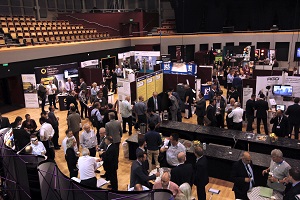
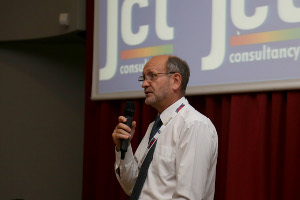
Special Events Sponsored by:


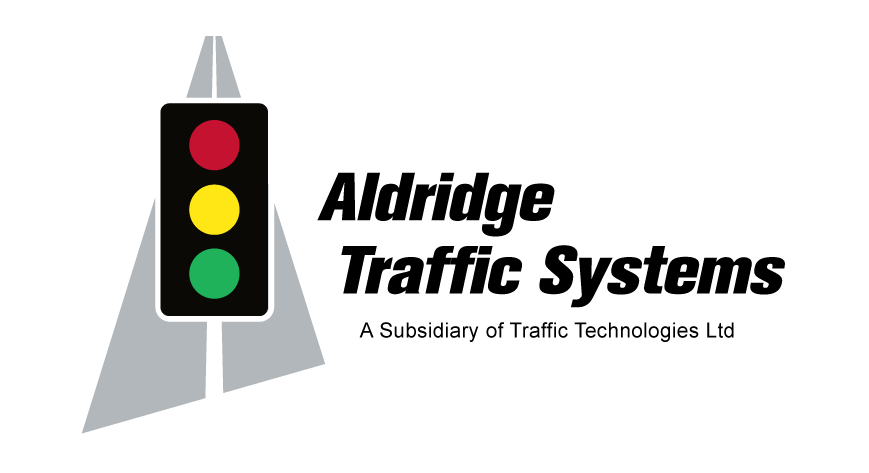

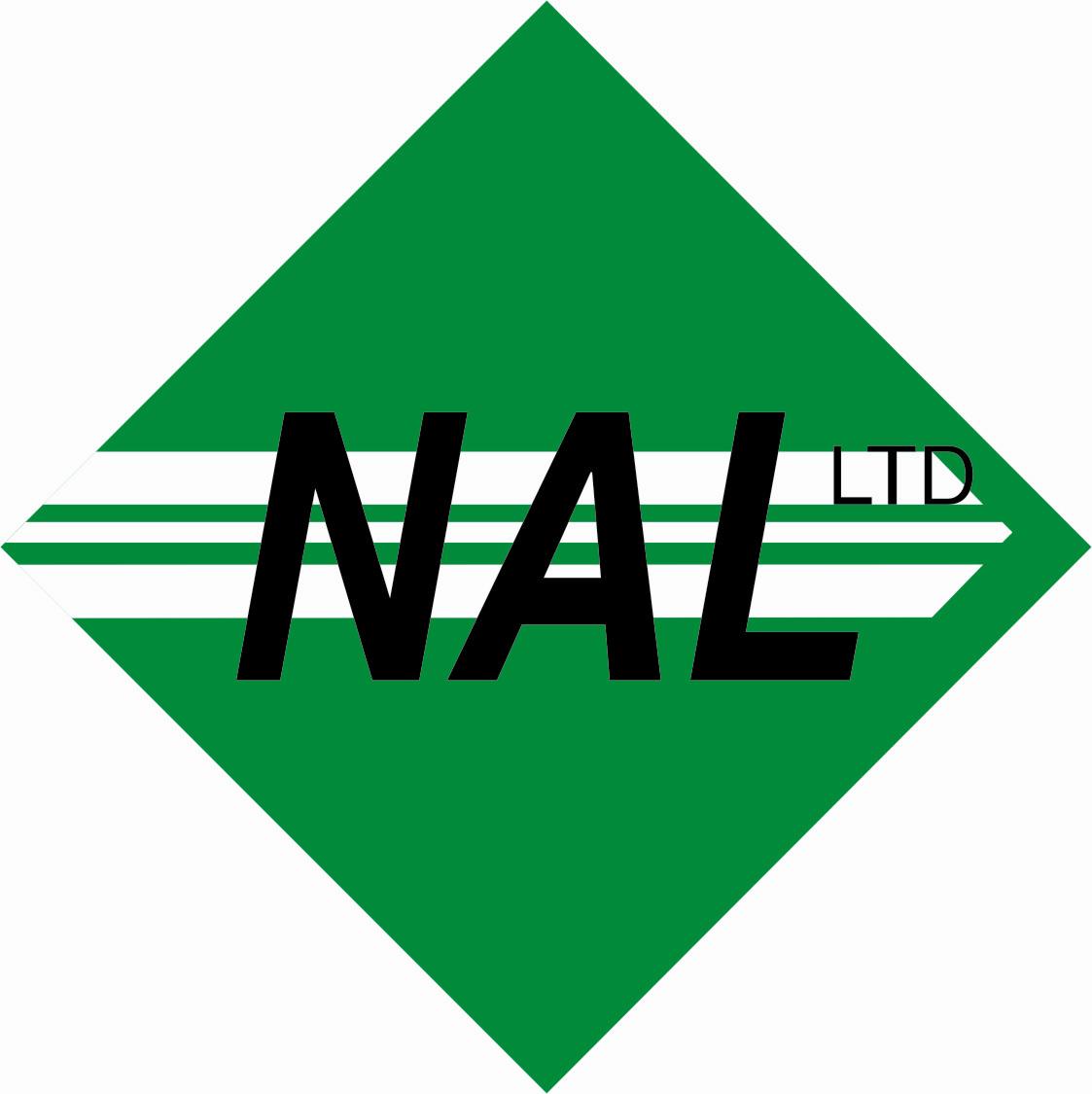




Media Partner:
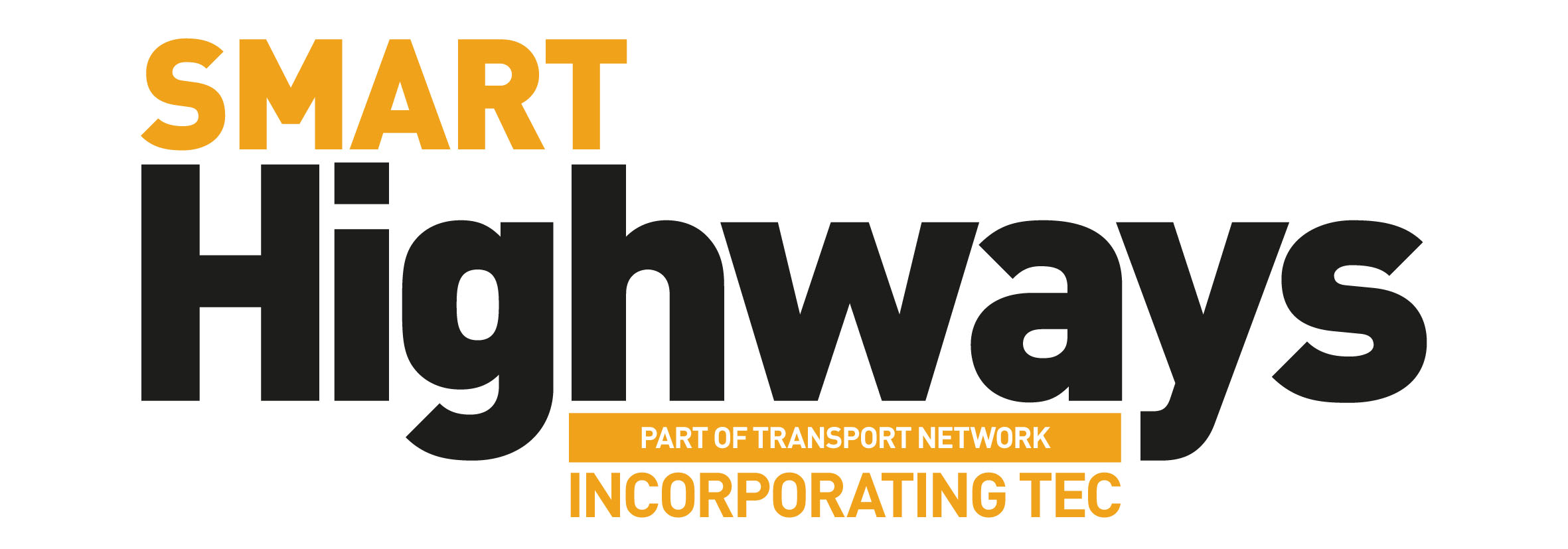
The 2018 Symposium was held at The Nottingham Conference Centre on the Wednesday 12th and Thursday 13th September 2018.
The format of the event was the same as in previous years and included a Symposium programme filled with topical presentations, a specialist Exhibition, and plenty of opportunities to catch up with old friends and colleagues and network with new contacts.
The MOVA User Group was also be held at the Conference Centre on Tuesday 11th September.
Overview
The JCT Symposium & Exhibition started in 1996 as a way to bring traffic signal practitioners together with manufacturers and to maintain a sense of community amongst signals engineers. It is intended to run as an affordable conference that is accessible to as many people as possible, regardless of experience and that encourages the exchange of knowledge, experience and good practice. Over the past few years, the symposium has consolidated its position as the UK's best conference event for traffic signals.
The Symposium & Exhibition runs over two days, and is usually preceded by the MOVA user group. It mixes conference style papers, the principal manufacturers, networking opportunities and organised social events in the evening. As far as content goes, the emphasis is on the signals community itself and JCT seeks submission of papers and presentations from working signal engineers, manufacturers and suppliers. The broad appeal of the programme means that papers are also welcome from policy makers, interest groups, and academics. If you would like to share your experience with the signals community then please let us know and we will do everything we can to help you including subsidising attendance at this event.
SMART Highways Videos
To bring the symposium to a wider audience selected presentations at the 2018 Symposium were recorded by SMART highways and can be viewed on YouTube. Follow the links below next to each paper to view the presentations. More links will be added over the coming months so check back on this page for the latest releases. Also remember that attendees of the 2018 symposium can sign up for a free subscription to SMART Highways magazine. Simply e-mail symposium@jctconsultancy.co.uk for your free pass code and then visit http://smarthighways.net/free-subscription/
Prizes 2018
As regular Symposium attendees will know prizes are awarded each year for the papers presented. The prizes are awarded by a panel of eminent traffic signal professionals
This year's prizes were awarded as follows:
Overall Best Paper
Saving Time for Bus Passengers, Pedestrians and Cyclists in London
Heidi Smart and Wissem Lakache - Transport for London
[Download Paper →]
Best Presentation
A Different Approach to Quantifying Junction Modelling
Hannah Atkins and Jacky Thomas – DHA Transport
[Download Paper →]
[Watch Video of Presentation on Youtube →]
Most Thought Provoking Presentation / Paper (Joint Award)
Keeping Perth (Western Australia) Moving from a Network Operator Perspective
Tony Earl – Main Roads Western Australia
A year of innovation in ITS projects
Peter Routledge – Ian Routledge Consultancy & Rob Whiteside – Independent
[Download Paper →]
Most Innovative Presentation
Kirklees, laying the foundations for focused air quality-based vehicle control
Dave Caborn – Kirklees Council
[Download Paper →]
[Watch Video of Presentation on Youtube →]
Paper Most Likely to promote Best Value (Joint Award)
The effect of minor traffic signal faults on congestion and emissions
Nick Warwick – Cumbria County Council
[Download Paper →]
[Watch Video of Presentation on Youtube →]
Doing more for a lot less: Effective Cost Saving Measures in Urban Traffic Control
Jackie Davies – Bristol City Council
[Download Paper →]
[Watch Video of Presentation on Youtube →]
Institute of Highway Engineers Exhibition Treasure Hunt
The treasure hunt prize this year was a drone.
2018 Symposium Papers
The programme of papers for 2018 is shown below:
Copies of selected papers to download will be available here shortly.
Protected junctions for cyclists
Brian Deegan – Urban Movement & Richard Butler - Transport for Greater Manchester
Brian is the Senior Engineer leading a project in Greater Manchester on behalf of the Commissioner for Cycling and Walking (Chris Boardman) at the Greater
Manchester Combined Authority. Brian will focus on innovations in signal design and promote a technical discussion on how
Manchester can deliver better junctions for cyclists.
[Download Paper →]
The Launch of Traffic Signs Manual Chapter 6 - Traffic Control
Sally Gibbons - DfT
Sally will introduce the new Chapter 6 which will mark a significant milestone for advice in traffic signals, bringing together DfT advice on Traffic Control into one easy to use document.
Public Transport Priority in Melbourne, Australia
Anthony Fitts - Vic Roads, Australia
Anthony will give an overview of a public transport priority system (TRANSnet) being implemented which utilises the
SCATS (Sydney Coordinated Adaptive Traffic System) traffic signal control system and GPS bus tracking information.
The paper will discuss the trials with trams which is being conducted with ARRB (Australian Road Research Board),
LaTrobe University and Yarra Trams and with buses which is being conducted with PTV (Public Transport, Victoria) and
Bus Operators. The type of signal priority being implemented will be discussed.
[Download Paper →]
[Watch Video of Presentation on Youtube →]
Healthy Streets in London – using our signals creatively to make the capital healthier
Helen Cansick & Joseph Birdseye - Transport for London
The Mayor’s of London’s Transport strategy sets out a clear direction to improve the quality of streets in London
and improve the health of Londoners, in doing so. Helen will set out what this approach is, and the role that London’s urban
traffic control system can play in enabling this vision. Joseph will outline an innovative trial that has taken place on Putney
High Street to directly tackle poor air quality through a very different approach to traffic management. He will share results from
the trial and summarise what TfL has learnt through this project.
[Download Paper →]
6MRR in practice : Automatic stage selection for fully signalised right turns
Thomas Crowther and Emma Robshaw - WSP
Thomas and Emma will present a collaborative paper from WSP, Rotherham Borough Council and Motus which will examine the use of the MOTUS morph unit running
MOVA M8 and using Bluetooth data to show before and after results.
[Download Paper →]
[Watch Video of Presentation on Youtube →]
Keeping Perth (Western Australia) Moving from a Network Operator Perspective
Tony Earl - Main Roads, Western Australia
Formerly TfL's Surface Transport's Head of Network Performance Tony joined Main Roads in Perth in 2014. Over the last four years he has assembled a team of highly trained and motivated engineers and set an ambitious programme to improve the performance of Perth's networks. His systematic approach and concentration on performance outcomes means his rolling programme is delivering real and measurable results. Tony will give the Symposium audience an insight into Perth's work, share details of his methodology and layout his future vision for Perth to become a world class Network Operator.
Data Driven Decisions for Centralised Bus Priority in Dublin City
Margaret O'Donnell - Dublin City Council
Margaret will present the decision making strategies for configuring the automatic bus priority via the Dublin Public Transport Interface
Module (DPTIM), and results from various locations in Dublin City where centralised bus priority interventions are applied. Additionally,
Margaret will present various reports, data visualisation, and dashboards utilised by the Bus Priority section of Dublin City Council.
[Download Paper →]
[Watch Video of Presentation on Youtube →]
Reducing the impact of HGV traffic on MOVA operation using advanced loop detection
Mark Roxburgh – Highways England and Jack Durdle - Siemens
Mark and Jack will describe using priority extensions in MOVA to optimise timings for HGVs.
Transport planners, ITS engineers and automotive engineers: a collaboration story
Devrim Kara – PTV
ITS engineers develop technology and solutions that control road traffic and other transport modes. Technology such as adaptive traffic signals, smart motorways, real time public transport information systems can help improve the efficiency and reliability of the transport networks. Automotive engineers develop detailed models and simulations of the vehicles and the interaction of components within a vehicle power train. They aim to optimise the vehicle designs for safety, comfort and cost. The collaboration between these groups has been limited but this is changing fast and there are many benefits that such collaboration can create for the transport infrastructure, the manufacturers and ultimately the transport users and the environment.
Save Lives, not Seconds
Rik Andrew – Founder Junction Review Group
Rik Andrew is passionate about cycle safety and will share his views on how we can improve junctions and reduce cyclist and pedestrian casualties.
[Watch Video of Presentation on Youtube →]
The effect of minor traffic signals faults on congestion and emissions
Nick Warwick - Cumbria County Council
Nick will assert that detector faults (that can lead to faulty timings) can go undetected and unreported. Emissions ‘bottom out’ from
about 20 mph upward and at 10mph, emissions are nearly doubled. So, if a faulty (unreported) detector increases congestion because of
poor performance of the junction, it is worth investigating. In his trial (over a 2 week period) turning counts, queue lengths and journey
times were measure. For four of those days an on-crossing detector was set to ‘faulty’, and the effect on traffic, particularly for emissions
was analysed using Aimsun. Results will be shared at the Symposium.
[Download Paper →]
[Watch Video of Presentation on Youtube →]
A different approach in quantifying mitigation in modelling
Hannah Atkins and Jacky Thomas – DHA Transport
Hannah and Jacky will give their thoughts on how signal modelling can be made more accessible to a wider audience and will demonstrate this
through case studies. They will discuss how when results are conveyed to the public and planning committees it is often very difficult for
the technical results to be translated into relatable and understandable terms. They will suggest that it may be better to focus on travel
time savings and the economic benefits which ensue and quantify proposed mitigation in a more understandable format.
[Download Paper →]
[Watch Video of Presentation on Youtube →]
New Benefits From Detection In Smart City Environments
Greg Baker - AGD and Chris Kennett - Green Signals
Greg will discuss the very latest developments in AGD's new generation of smart detectors and Chris will present the results of deployment in the real world.
Lowestoft Bascule Bridge – Multiple Data Source & Control Strategy
Ian Caruana – Suffolk County Council
Local lore has the first traffic jam at the Bascule Bridge in Lowestoft being recorded in 1830. Suffolk County Council is developing
a novel approach to alleviating the traffic issues around this long standing historical pinch point. Normally the junctions and pedestrian
crossings in the area run in a daytime SCOOT configuration with time of day variation complemented by tidal flow running on the bridge. When
the bridge opens to shipping, major congestion is experienced in the area. By using a combination of variable message signs and controller plans
to remove demand from the area the impact of the bridge being closed to vehicles is minimised. When the bridge is re-opened to traffic, recovery
strategies are run to clear residual congestion, before returning to SCOOT operation. This paper discusses the use of crowd source data, implementing
different strategies and testing their effectiveness to be utilised as an additional trigger.
[Download Paper →]
[Watch Video of Presentation on Youtube →]
Smart Traffic - Big Data for Predictive Traffic Management Services
James Drinkall & Sandra Kamphuis, Sweco UK Ltd
Sandra and James will present new technology for Traffic Light Controllers based on real-time and predictive data fusion models, resulting
in a higher throughput at the intersection and a better match with local policies. Using this new approach they will suggest how cities can
already recap the benefits from this novel technology and be better prepared for the connected and cooperative future.
[Watch Video of Presentation on Youtube →]
Doing more for a lot less: Effective Cost Saving Measures in Urban Traffic Control
Jackie Davies – Bristol City Council
The cost of installing and maintaining detection at Traffic Signals can be prohibitive for many Local Authorities,
which can strongly affect the efficiency of their traffic signal networks. Jackie’s paper offers a range of alternative methods
that can be adopted for SCOOT sites in order to provide the SCOOT model with the data it needs to model effectively.
[Download Paper →]
[Watch Video of Presentation on Youtube →]
An overview of Eboracum: innovate adaptive signal control in York
Sean Bulmer - City of York Council, Simon Notley – Dynniq and Alastair Pocock - Traak
York’s paper will describe a project involving nine intersections on the A59 replacing existing SCOOT loop detectors with Traficam detectors,
using GPS-derived traffic data and data from WiFi beacons. They will describe testing of various plan-level regimes specifically:
[Download Paper →]
[Watch Video of Presentation on Youtube →]
Get Notted - Innovative linking using MOVA for corridor management - A case study in Crawley
Dan Preece – Integrated Traffic Services
Dan will describe a large scale project which links seven junctions together using MOVA using innovative logic.
[Download Paper →]
[Watch Video of Presentation on Youtube →]
Using in-vehicle information services to improve road safety - The Arctic Challenge Project
Simon Notley - Dynniq
With individual vehicle data becoming more widely available, the Aurora Arctic Challenge project in Finland provides a
first glance at how in-vehicle services perform and provide benefits to road authorities and users under winter conditions.
Emerging central ITS platforms are positioned to link traffic management centres to road users to provide real-time services
which focus on enhancing safety and traffic flow. Together with research partners and the Finnish Transport Authority, Dynniq
has been testing services in sub-zero conditions to provide learnings on the operation of these services on a key logistics corridor
between Norway and Finland. Results of testing and a first public demonstration share insight on how such services can be tested in both
urban and inter-urban environments in the UK, following initiatives such as Intercor and the ITS-Corridor projects.
[Download Paper →]
[Watch Video of Presentation on Youtube →]
Saving time for bus passengers, pedestrians and cyclists in London
Heidi Smart & Wissem Lakache - Transport for London
Making London’s streets healthier in terms of transport involves a raft of changes and investment. TfL’s annual traffic signal timing
review programme is reducing delay rapidly and cost effectively for people who chose to take the bus, walk or cycle in London. These
incremental and localised benefits are now reported through a new performance measure on Transport for London’s scorecard as one of the
metrics which measures success in delivering the Mayor’s plans for healthier streets. Wissem will outline the new approach to undertaking
signal timing reviews in London, with a focus on how to benefit sustainable modes, and Heidi will outline a brand new approach to calculating
and reporting on the benefits achieved.
[Download Paper →]
TOPAS – An update after four years of operation
Keith Manston - Siemens and Adrian Gray - Hampshire CC
Keith is the current chair of Traffic Open Products and Specifications (TOPAS) and Adrian the vice chair.
They will share with the symposium the current work being undertaken by TOPAS and give an overview of future work.
[Download Paper →]
[Watch Video of Presentation on Youtube →]
A year of innovation In ITS projects
Peter Routledge – Ian Routledge Consultancy Ltd and Rob Whiteside - Independent
Ian Routledge Consultancy are renowned for innovation in ITS. Peter and Rob will share a sample of the innovations in signal design and
control across a range of projects over the last twelve months and give a hint at what is to come.
[Download Paper →]
[Watch Video of Presentation on Youtube →]
ARTSM : A Trade Association for our Industry
Mark Pleydell - ARTSM
Mark will introduce the Association for Road Traffic Safety and Management and its work in influencing technological developments and
improving standards in traffic engineering operations.
[Watch Video of Presentation on Youtube →]
Shuttle Working – The “Cambridge” Method with MOVA and VMS
Paul Finch and Chris Kennett – Green Signals Consulting
Paul and Chris will describe a project running under MOVA complete with VMS and Overheight Vehicle Detection.
The operation of the shuttle uses an old but highly effective system used across Cambridgeshire.
[Download Paper →]
[Watch Video of Presentation on Youtube →]
New approaches to operating ITS
Martin Andrews - Siemens
Martin will share with the Symposium audience Siemens’ latest approaches in ITS.
Kirklees, laying the foundations for focused air quality-based vehicle control
Dave Caborn – Kirklees Council
In partnership with Dynniq, Kirklees have been deploying Virtual Emissions Monitoring (VEM) and are planning to use these data to drive UTMC strategies to improve air quality.
[Download Paper →]
[Watch Video of Presentation on Youtube →]
Exhibition
The Symposium has had a parallel exhibition for many years and features the main companies working in traffic control. Entry to the exhibition is free for Symposium delegates.
Exhibitors for 2018 included:
|
|
Event Sponsors
As in previous years the Symposium was sponsored by several major companies from the traffic control industry. Once again, Siemens generously sponsored the main Gala Dinner on the Wednesday evening.
The following was kindly supported by our sponsors:
- Gala Dinner (Wed Eve) - Siemens
- Barbecue Night (Tue Eve) - Aldridge Traffic
- Drinks Reception (Wed Eve) - Swarco
- Evening Social/Networking on Tue and Wed - Dynniq, NAL, Swarco, Coeval, TRP, ARTSM
- Delegate Goody Bags/Badge Lanyards - Smart Highways
- Exhibition Treasure Hunt - Institute of Highway Engineers
Further Information
If you would like any further information regarding the Symposium or Exhibition please don't hesitate to contact us at symposium@jctconsultancy.co.uk.
 |
|
 |
|
 |
|
